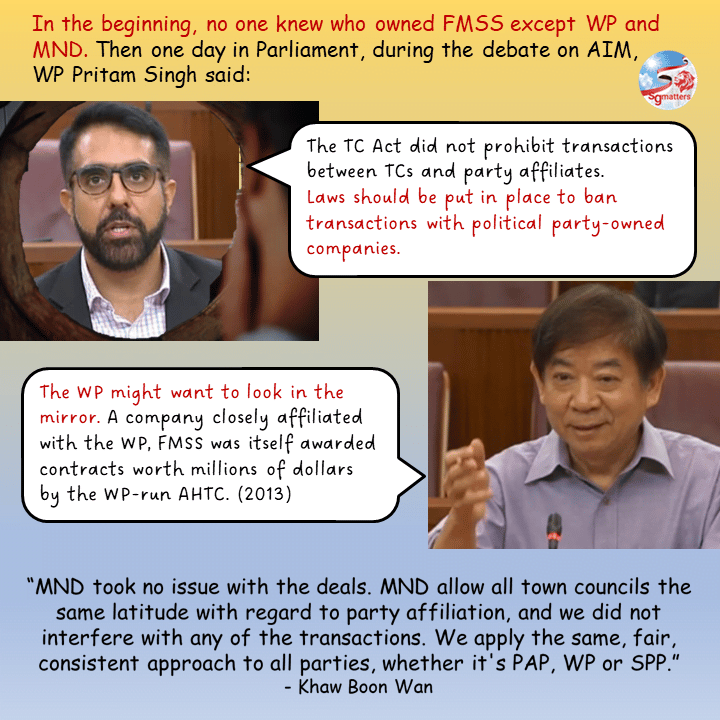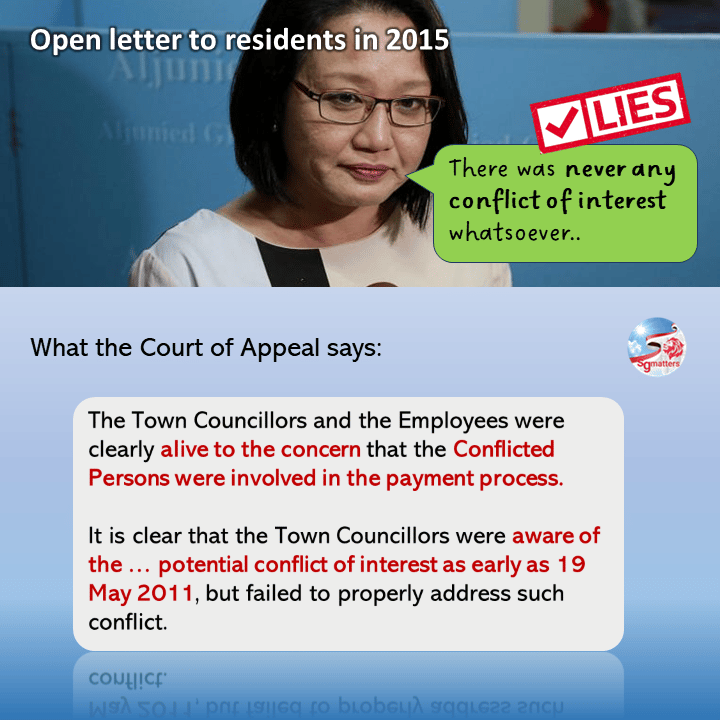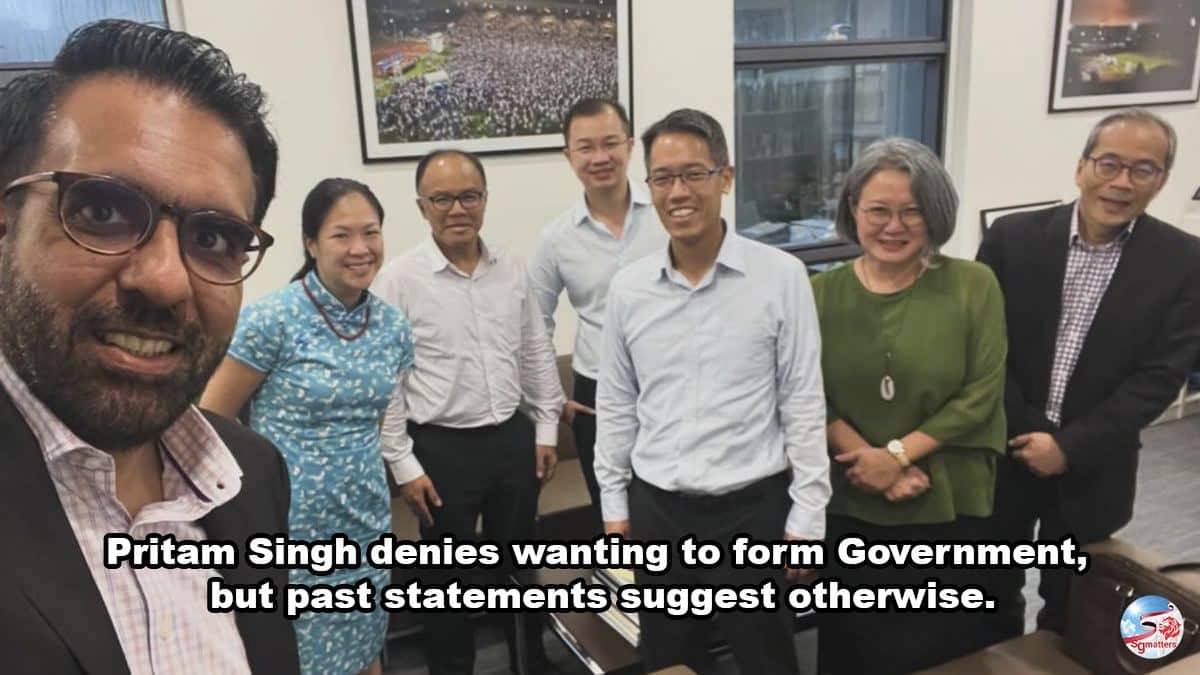
So what is the issue?
In the words of the Court of Appeal
At the outset, what is clear is that there was no actual verification of whether work was done, even at the Fourth Stage of the payment process .. Indeed, there appeared to be no actual certification or verification of work being done; the various steps of the payment approval process simply involved tallying numbers to ensure that the figures were consistent. (449)
We agree with the Plaintiffs that this was simply not a system that was meant to ensure that each payment was justified. .. Ms Lim’s own concession that it would not be practicable for her to “personally verify on the ground that every item of work is completed before appending [her] signature to the cheque” only serves to underscore the fact that the Standing Instruction was a woefully inadequate safeguard in the light of the involvement of the Conflicted Persons. (450)
And such conflict must have been even more apparent by August 2011, when the LOI had been signed, AHTC had awarded the First MA Contract to FMSS, and both Ms How and Mr Loh had assumed key managerial roles in AHTC, as General Manager/Deputy Secretary and Secretary respectively – all this while Ms How and Mr Loh remained shareholders, directors and employees of FMSS. (452)
It appears to us that the Town Councillors simply took it on faith that FMSS was performing the work it was contracted for and being paid to do. .. This was exacerbated by the manifest conflicts of interest which were clearly perceived and understood by all concerned. In our judgment, this was a paradigm example of poor financial governance and a breach of the duty of care. We are also satisfied that s 52 of the TCA does not operate to shield the Town Councillors and Employees from personal liability because, given the severity of this failure, it could not be said to have been done in good faith. (454)
To sum up
The WP MPs were fully aware that conflicted persons were involved in the payment process. The risk of overpayment or improper payments was clearly present in their minds and the payment process was woefully inadequate. Yet they allowed this state of affairs to persist and over a period of 3 years, awarded over $23m in contracts. The character of such neglect is grave.






